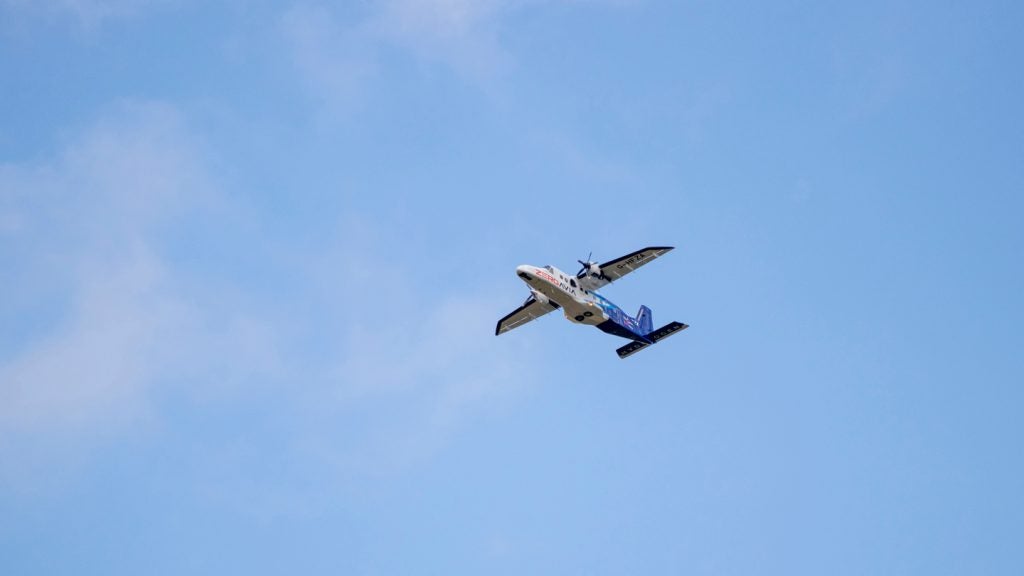
Baggage handling has always had a reputation as being a particularly miserable aspect of the air travel experience for passengers. Whether it’s standing in never-ending queues for baggage check-in, staring disconsolately at an empty luggage carousel or wading through red tape to trace a lost suitcase, most seasoned travellers have at least one baggage-related horror story hidden up their sleeve.
Thankfully, with the continual advancement of digital communications, robotics and other technologies, airports now have more options than ever before to improve this much-maligned feature of airport operations.
It’s an opportunity that many airports around the world have wholeheartedly embraced with the installation of new high-tech baggage systems which improve security, item tracking and convenience. Here, we shed light on some of the most exciting modern innovations in the baggage handling field.
Robotic baggage handling: from smart idea to common vision
As one of the most advanced airports in the world, Amsterdam Airport Schiphol has a proud history of implementing new ideas before anyone else. With its latest upgrade to baggage handling, however, the airport might have outdone itself. In conjunction with Vanderlande Industries and Grenzebach Automation, Schiphol has developed the Integrated Robot Loading concept, a robotic system which replaces manual labour with artificial intelligence for one of the airport’s most time-consuming baggage handling tasks.
Under the new system, all checked-in and transferred luggage can be moved to one central storage facility, where a robotic arm (supervised by a logistics transport manager) automatically loads ramp-carts and containers as and when they are required. The investment in this remarkable system is designed to optimise the baggage handling process and free staff members for more complex tasks.
The system, and the airport’s associated ‘Baggage on Demand’ concept, was honoured with an innovation award at the Inter Airport Europe conference held in Munich on 11 October 2011.
How well do you really know your competitors?
Access the most comprehensive Company Profiles on the market, powered by GlobalData. Save hours of research. Gain competitive edge.

Thank you!
Your download email will arrive shortly
Not ready to buy yet? Download a free sample
We are confident about the unique quality of our Company Profiles. However, we want you to make the most beneficial decision for your business, so we offer a free sample that you can download by submitting the below form
By GlobalData"What initially was a smart idea from Schiphol has lead to a common vision," said Dr. Joachim Döhner, Grenzebach Automation’s director of airport logistics at the ceremony.
"After several years of hard work this vision has been successfully realised, thanks to the creativity, enthusiasm and perseverance of all the people involved, including specifically our partners and Amsterdam Airport Schiphol who have joined us on this journey."
RFID baggage systems finally coming in to land
Radio frequency identification (RFID) has been a major part of supply chain logistics and other fields for more than a decade, but this innovative tracking technology has only been applied to airport baggage handling operations during the last couple of years. RFID, which allows items to be tracked through electronic tags, has a number of applications for airport baggage systems.
The most important advantage of RFID tags over traditional barcode-based sorting systems is that there is no requirement for line of sight to read RFID, which use radio waves to communicate information. This facilitates a much higher read-rate (more than 99% according to some providers), meaning few bags have to be sorted manually. Although RFID baggage systems have been implemented in airports since 2008 and before as a way of sorting transfer baggage and other tasks, the first airport RFID system which stores sorting data on all luggage was installed at Aalborg Airport, Denmark, in May 2010 by Lyngsoe Systems.
Commenting on the launch, Aalborg Airport CEO Søren Svendsen was enthusiastic about RFID’s possibilities. "RFID is the future for baggage handling and will be able to provide us with new possibilities for accurate baggage handling as well as passenger services that we could not provide without it," he said.
"Step one is to increase our baggage handling capacity, but the RFID technology offers many other possibilities."
Svendsen’s optimism concerning RFID’s future in the aviation sector seems to have been well-placed, as an increasing number of airports are investing in the technology to improve efficiency. Among the most recent of these is Helsinki Airport, which completed an RFID upgrade to its baggage handling capability in March 2012.
Designed and installed by Crisplant, the system combines both barcode scanning and RFID tags for a 100% read-rate on incoming baggage from Hong Kong and Amsterdam Schiphol, which are compatible as these airports already use RFID technology.
"The new baggage handling system will provide a foundation on which Helsinki Airport can achieve continued growth by ensuring high terminal efficiency and an ultra-fast connection time," said Esa Siponen, Helsinki Airport vice president.
Self-service concept gathers steam
The self-service concept has been building momentum in the aviation industry for a number of years as a means of streamlining the terminal experience for clued-up frequent flyers. Most modern terminals now come fitted with rows of self-service check-in kiosks, which save passengers time spent in queues and provide a more efficient system for airlines and airport operators.
Now the self-service concept is gaining a foothold in the baggage handling world, with a growing group of airports conducting extensive tests on automated self-service baggage drop-off systems. Once again Amsterdam Airport Schiphol has lead the way, with 2008 trials followed by an initial installation of six BagDrop self-service units in August 2011 and a further 12 units in February 2012. Other airports, including Paris-Orly and Bologna Airport, have followed with trials of their own.
"The big advantage of a self-service drop-off unit is that it is always available," said Schiphol Group’s director of operations Roel Hellemons in September 2011. "This means that more capacity is available, resulting in higher efficiency for passengers, the airline and the airport. In addition, passengers are in control of their own process and can check-in their baggage in very little time."
Self-service concepts are also beginning to be applied in less obvious ways. At Geneva Airport, ground services provider Swissport has introduced an online-enabled self-service option which it believes will make reporting and reclaiming missing luggage simpler for stressed passengers. Instead of having to queue at a missing baggage counter to register the problem, travellers now have the option to declare their bag missing on a specialised website once they arrive at home or their destination.
To some, it might seem like an impersonal solution to such a sensitive problem, but Swissport reports that on the system’s first day of operation at the end of March this year, 2012, ten percent of customers with lost bags were willing to try the new system out.
In any case, Swissport is confident enough in its new system to announce that it plans to expand the online service to other Swissport operations worldwide. The company also intends to upgrade the website itself, with regular status updates for missing luggage, including information sent direct to the customer by e-mail or text message.







